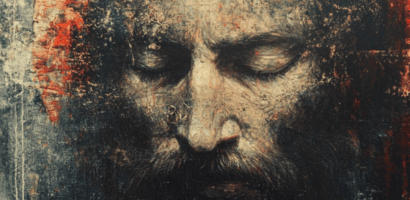His Master Saw…
We are back to Joseph’s saga. “The Lord was with Joseph” – these words are the key to the developing drama that now takes up the thread dropped for a while because of the Judah and Tamar interlude. God’s presence is constantly in the background, both when Joseph is in trouble and when he is successful. A Midrash comments: human friends can always be found when a man is successful, but in time of trouble, they tend to forsake him. Not so God: he was with Joseph when he was a slave, when he was in a prison, and when he was viceroy.
The beginning of chapter 39 is remarkable: it describes the pattern that we will see several time more in this story.
- The Lord was with Joseph (Gen 39:2)
- Joseph’s master saw that the Lord was with him (39:3)
- Therefore, his master gave everything into his hands(39:4)
When his master saw that the Lord was with him… For me, this is one of the most powerful testimonies of this book: the Bible is very honest, and we often see the flaws, the mistakes, the weaknesses and even sins of its main characters; however, the moment inevitably comes when people around also see the blessing of God upon them. We have seen it with Abraham, Isaac, Jacob, and we see it with Joseph as well. Potiphar, Joseph’s master, saw that the Lord was with Joseph – and placed everything in his hands.
Well-built and handsome
Right after learning that Joseph’s master placed everything in his hands, we also learn that Joseph was well-built and handsome. These words mark a transition to the next part of the story. We learn that Joseph seemed special – not only to his master.
Everyone knows the story about Joseph and Potiphar’s wife. It’s interesting that Scripture doesn’t even give her name; we are simply told about Joseph refusing his master’s wife. Why? Because as a servant, he probably had to obey her – after all, she was his master’s wife; but in this conflict between the servant’s duty and his conscience and God, he chose God.
In his response to Potiphar’s wife, Joseph says that yielding to her would be a sin before God. Let us contemplate these words—“sin before God”—and let us imagine how different it was from other cultures. In many other cultures, adultery would be merely misbehavior; a wife would be considered a property, and it would be regarded as injury to a man’s possession. In the Bible, however, marital trust has divine sanction and is fundamental to human relationship. Therefore, adultery is a sin before God. Of course, Joseph doesn’t want to violate the trust of Potiphar either, but still, the main point was God: he didn’t want to sin before God. It means that, even though God was also with Joseph in these moments of great temptation and responsibility, His presence was not Joseph’s magic power to be righteous, but his moral compass that provided spiritual guidance.
We have reason to believe that Potiphar suspected something and didn’t really believe his wife – because in Egypt the punishment for the crime of which she had accused him was far more severe than what Joseph received. Potiphar had to remove Joseph from his wife, so Joseph was imprisoned – but he was sent to the king’s prison (some believe that Potiphar himself was the superintendent of that prison). However, the prison doors could not hold the LORD’s presence back. Once again, we are told that “the LORD was with Joseph”.
The Prison
The last verse of this chapter tells us about the same pattern that we saw in Potiphar’s house: the chief jailer “did not look into anything that was under Joseph’s authority, because the Lord was with him; and whatever he did, the Lord made it prosper”.
- The Lord was with Joseph
- The chief jailer saw that the Lord was with Joseph
- The chief jailer put everything and everybody in Joseph’s charge.
The next chapter – and next section of the narrative – begins with Pharaoh’s displeasure with hisמַשְׁקֵה (mashkeh) “cup bearer” and הָאֹפֶה (haofeh) his “baker” that served in his royal court. Mashke – Cupbearer: the royal taster, an important government official; Chief baker: the Egyptians were renowned gourmets and knew 57 varieties of bread and 38 different kinds of cakes. Pharaoh puts both of his main servants into the same prison as Joseph.
They had not been long in prison when both had disturbing dreams in the same night. In the morning, Joseph noticed their anxiety and inquired into the cause. They explained their distress: because they were in prison, they had no access to priests, and no professional dream interpreters were around for them to seek explanations. In Egypt, dreams usually were considered coded visions to which a key was needed. Professional dream interpreters who claim to possess these keys, were prominent in Egypt, an Egyptian manual of dreams (around 1300 BC) contains over 200 interpretations. Now you can understand why they were so distressed! They were in prison, they had no access to priests or to professional dream interpreters. But Joseph pointed them straight to God: “Do not interpretations belong to God?” –encouraging them to tell their dreams and trusting God to give him correct interpretations. This means that in any case, whether or not he was able to interpret their dreams, he would not claim power or wisdom like the Egyptian magicians. It is clear to Joseph that interpretations belong to God alone!
We spoke already about the two types of dreams: those in which God actually addresses man[1], and dreams in the form of parables or pictures, which require interpretation. Usually, God communicates directly to outsiders: Abimelech and Laban, for example. Of course, He could have done the same here, yet the whole theme of the dream interpretations here is needed for the sake of Joseph. However, there is a remarkable detail not to be missed: when Joseph shared his dreams with his family, there was no need to interpret them professionally. In Canaan, not only Jacob/Israel but also Joseph’s brothers – who were not very good or spiritual guys at this point – understood the content of dreams perfectly, while the Egyptians needed interpretation. You may all know this joke: When the Pope visits Israel and sees ‘the direct phone line to God’ in the Israeli Rabbi’s office, he asks how much it would cost and is surprised by the response: “One shekel.” “Why so cheap?!” the Pope asks. The Rabbi smiles: “Local call.” I can’t help but remember this joke every time I read this scene: The language of these dreams seems like a local language in the land of Canaan, but is not understood by the Egyptians.
Both of Joseph’s dream interpretations come true exactly in the way he explained them[2]. However, the chief cupbearer who went back to Pharaoh’s palace never told Pharaoh about Joseph. Yet, can the hand of God be stopped?
[1] Gen. 20:3
[2] Gen.40:9-13








I like your view and sharing. Thank you.
Thank you Henry, for your kind words!